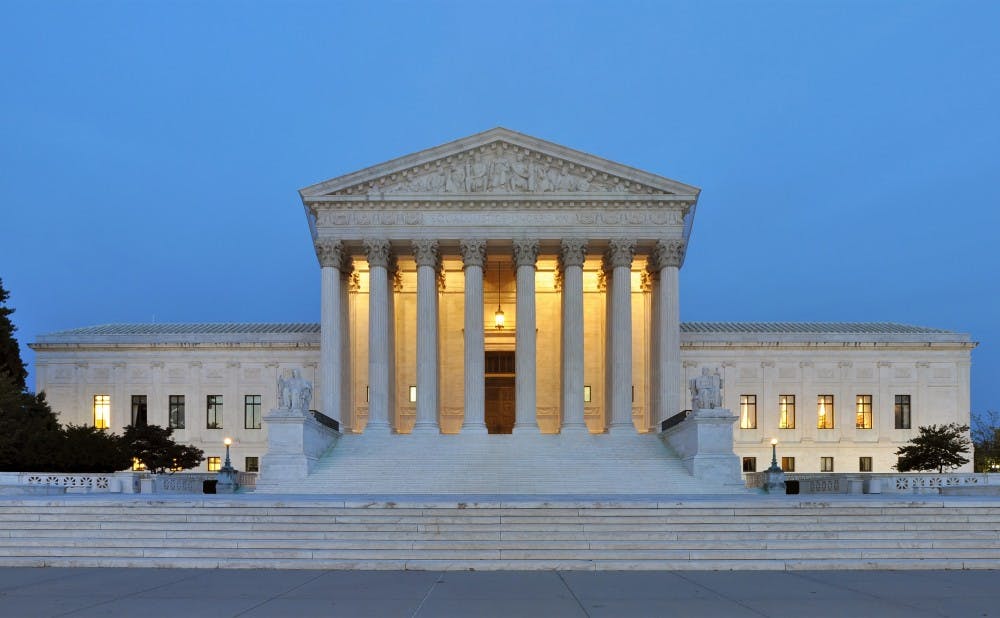The U.S. Supreme Court rejected the “independent state legislature” theory advanced by North Carolina Republican legislative leaders in a decision released Tuesday. The theory contends that state legislatures have exclusive authority over federal elections laws, particularly the drawing of districts for the U.S. House of Representatives.
Authored by Chief Justice John Roberts, the 6-3 decision holds that the Constitution’s elections clause “does not insulate state legislatures from the ordinary exercise of state judicial review.” Roberts notes that “the Elections Clause expressly vests power to carry out its provisions in “the Legislature” of each State, a deliberate choice that this Court must respect.”
"This is a good decision that curbs some of the power of Republican state legislatures and affirms the importance of checks and balances," Democratic Gov. Roy Cooper said in a press release.
The Court’s ruling reaffirms the ability of state courts to check state legislatures by intervening in federal election rules, including those involving redistricting. The case sets a precedent that state legislatures do not have unlimited power regarding federal elections.
Though it holds important implications for future district-drawing disputes, the decision does not immediately have much effect on North Carolina. A group of experts hired by a court drew the maps used for the previous midterm elections, and state law requires that maps drawn by a court may only be used in one election. A Republican supermajority in the General Assembly will draw a new map for the 2024 elections.
The case, Moore v. Harper, began when the North Carolina Supreme Court, which had a Democratic majority at the time, ruled in February 2022 that congressional maps drawn by the General Assembly unconstitutionally “infringe[d] upon that voter’s fundamental right to vote” through partisan gerrymandering. The proposed maps would have given Republicans solid control over 10 of the state’s 14 districts, despite the number of Republicans and Democrats in the state being roughly similar.
Led by House Speaker Tim Moore, North Carolina Republicans appealed the state supreme court’s decision and ultimately brought the case to the U.S. Supreme Court. The court heard oral arguments for the case in December 2022. The question was whether the North Carolina Supreme Court had overstepped its authority.
In April, the North Carolina Supreme Court, which now seats a Republican majority, reversed the previous ruling, allowing the legislature to draw congressional maps how they see fit. Despite this change, the Moore v. Harper case proceeded.
Roberts was joined by Justices Amy Coney Barrett, Ketanji Brown Jackson, Elena Kagan, Brett Kavanaugh and Sonia Sotomayor. Justice Clarence Thomas wrote the dissenting opinion and was joined by Justice Gorsuch and in part by Justice Samuel Alito.
In the dissenting opinion, Thomas called Moore v. Harper a “straightforward case of mootness.” He argued that the U.S. Supreme Court was affirming a decision that had already been reversed in April, and was therefore unnecessary.
Get The Chronicle straight to your inbox
Sign up for our weekly newsletter. Cancel at any time.

Michelle Brown is a Trinity junior and an editor-at-large of The Chronicle's 120th volume.

